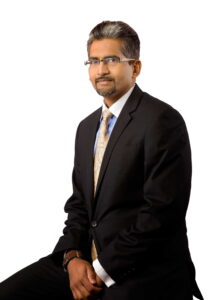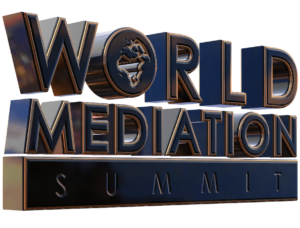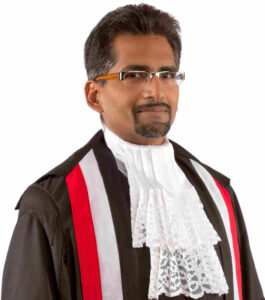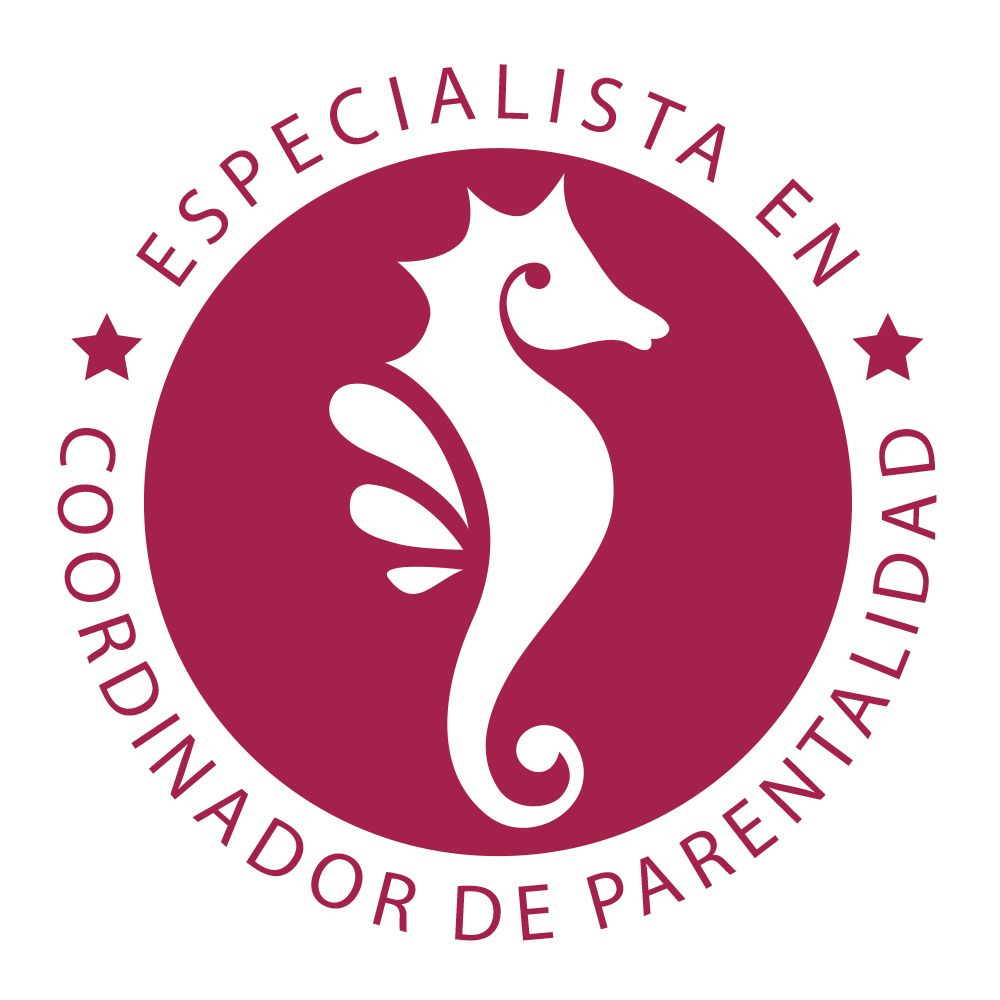
Vasheist Kokaram is a Judge of the Supreme Court of Trinidad and Tobago, having assumed office on 20th April 2009. He was a Partner of the law firm Messrs M.G. Daly and Partners, Port-of-Spain, from 1995 to 2009. As an advocate in their civil litigation department his portfolio covered areas such as labour and industrial relations, international trade and public and constitutional law. He was appointed a temporary High Court Judge of the Supreme Court of Trinidad and Tobago for the period January to August 2006.
Vasheist Kokaram is also the Chairman of the Mediation Board of Trinidad and Tobago assuming office in June 2010. He previously served as a part time mediator appointed under the Community Mediation Act from 2000- 2004. Vasheist Kokaram presently is a Judicial Settlement Conferencing Officer.
What can you tell us about your presentation at the WMS 2017 “Mediation from the judicial perspective, how to work together”?
My presentation is entitled: «The Foundations of a Peace Jurisprudence movement- LessonsLearnt from Caribbean mediation». I would like to share some ideas from our experiments in mediation in the Caribbean examining the underlying need to adopt a communal approach to justice.
The adversarial system of justice is an unsuitable mechanism for the promotion of peace in communities and in our society. The adversarial system of justice serves in most cases to exploit the stresses in our communities and is in fact counterproductive to national development.
 I advocate for a humanist approach to justice which has as its focus instead of the promotion of individualism the promotion of peace in co-existence. This lays the foundations of a Peace Jurisprudence. Such jurisprudence calls for a reinvention of the judicial process in form and substance in which the principles of mediation are transfused: compassion, collaboration and consensus. In my thesis I see these core transferable features of of mediation as having the potential to create a more humane judicial system sensitive to the need for disputants to give voice to their narratives, creating the environment for collaborating and building consensus rather than imposing results on disputants.
I advocate for a humanist approach to justice which has as its focus instead of the promotion of individualism the promotion of peace in co-existence. This lays the foundations of a Peace Jurisprudence. Such jurisprudence calls for a reinvention of the judicial process in form and substance in which the principles of mediation are transfused: compassion, collaboration and consensus. In my thesis I see these core transferable features of of mediation as having the potential to create a more humane judicial system sensitive to the need for disputants to give voice to their narratives, creating the environment for collaborating and building consensus rather than imposing results on disputants.
For the Caribbean where there is a long tradition of dispute resolution by strong communal responses to disputes I believe that this peace jurisprudence would be more attuned to our own instincts for the development of peaceful societies.
How is the situation of mediation and ADR in Trinidad and Tobago? Are you finding problems in your country to implement Mediation?
In the spectrum of ADR the most common practices are mediation, conciliation, arbitration and judicial settlement conferencing. Conciliation is utilised as the first step in the resolution of industrial relations disputes under the Industrial Relations Act. Arbitrations are conducted privately but not routinely. Mediation is fairly well established but there are some challenges. There is a well established programme of Community Mediation since 1998. There is a court annexed mediation programme for family matters in our Family Court. Mediation is now governed by a Mediation Act 2004. It was the first of its kind in the world where the Mediation Board was established to regulated the mediation profession. Its core responsibility is to certify mediators, mediator trainers, mediation training agencies and mediation training programmes. More information can be obtained on the Act and the boards activities on the website www.mediationboard-tt.org
There have been major strides in mediation since 2010, there is a mediation programme for law students and attorneys in the main are satisfied with the use of mediation. Many ministries and social groups are exploring the use of mediation. The President of the country has publicly endorsed mediation. There are 3 main challenges with mediation. First there is no formal court annexed mediation programme for the High Court or Court of Appeal. The rules would soon be amended later this year to facilitate this. Second there is still more education effort needed to build the culture of mediation and Third there is a reluctance for the state to engage in mediation.

You are President of the Mediation Board of Trinidad and Tobago since 2010, during these 7 years, How have you lived the evolution of mediation in your country?
It has been quite an exciting 7 years. In 2010 although the Board certifies mediators and regulates the profession we saw it important to begin an education campaign to raise the awareness of the public of the option of mediation. We started several projects: «mediation caravans» which are sensitisation sessions we convene with different groups in society, mediation debates and mediation art competitions for school children from ages 5 to 18, panel discussions and public interviews. Importantly we have been engaged annually in three important projects an annual Mediation Symposium, mediation week and mediation month. During mediation week or mediation month we focus on discrete themes for each week such as restorative justice, community mediation, family mediation, commercial mediation. We have an ongoing annual panel discussion with the law association under the banner «Mediation in the shadow of the law».
Our Mediation Symposium brings together our local regional experts on mediation and we showcase international guest speakers.
Our 7th Annual Mediation Symposium will take place form 11th to 13th September 2017 in Port of Spain under the theme «Reframing Reality». We will explore various conflict areas in particular the pscychology of violence, therapeutic mediation, mediation and political governance, restorative justice and the death penalty, ethical issues and core mediation skills.
Importantly recognising the existence of informal mediations we have created a safe space to explore the techniques and processes used in informal systems in a biannual Peace Summit held in Tobago. We also hold Peace Awards Ceremonies to celebrate the achievements of recognised «peacemakers» in the community. We are in the planning stages to make these awards regional and applicable to the Cairbbean region.
Over the years we continue to build our capacity in certification of mediators trainers agencies and programmes. We have seen and continue to work on the development of the profession through regular mediation forums to refresh their skills. However we see the need for a continuous professional programme as a mandatory requirement for re-certification, a mentorship programme for young mediators. We have also championed the development of a Caribbean Mediation Association.
Mediation is continuously evolving and we have called on our practitioners to develop their unique indiginous mediation style suitable to our culture. While we do have a code of ethics in our Mediation Act to which all must abide we look forward to the creation of new styles and techniques. Some new styles emerging are trauma interventions, mediation and counselling, and violence interruptors.
We have much more work to do in restorative justice and to legitimise mediation in the criminal justice system.
What actions and projects are being carried out from The Mediation Board of Trinidad and Tobago to promote Mediation? What is the “Peer Mediation Project” that has been implemented in the schools in your country?
Specifically with Peer Mediation we have advanced a model peer mediation template which is shared with groups for their own development of peer mediation programmes. There are schools who have on their own volition introduced peer mediation programmes. Laudably the Ministry of Community Development has launched a pilot project in specific schools to introduce peer mediation.
Vasheist Kokaram, How can the Judicial Power help to Mediation?
The judiciary of Trinidad and Tobago through our Chief Justice the Honourable Ivor Archie is firmly in support of mediation. Many judicial officers are certified mediators including the Chief Justice. Many of our judges practice judicial mediation. Our judges are now actively encouraging parties to mediate their claims. Gradually the approach of judges in managing cases are now more concillatory and collaborative rather than adversarial. It is no longer «what is your case» but «how can I help?»
My paper further elaborates on the judicial power and mediation.

















